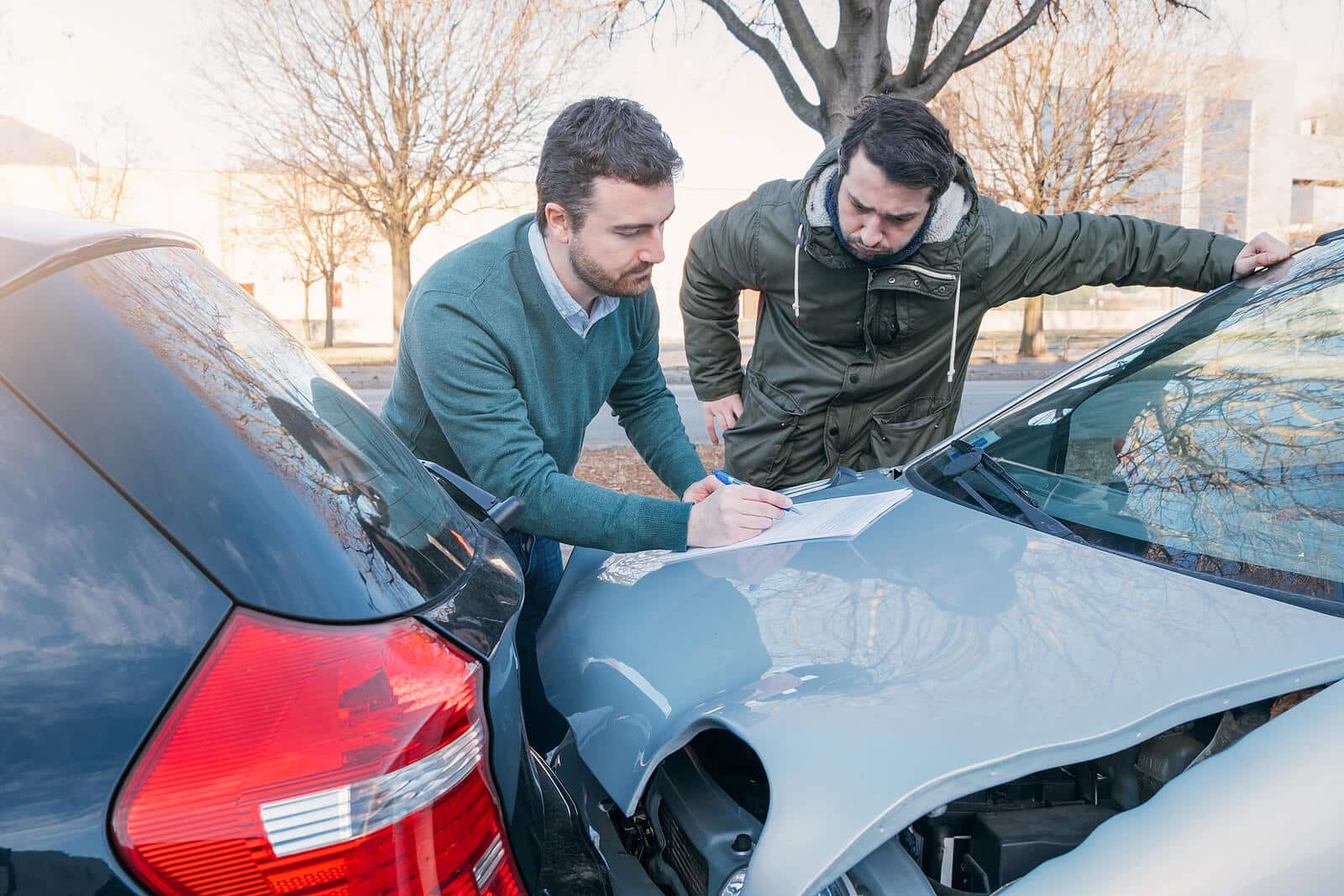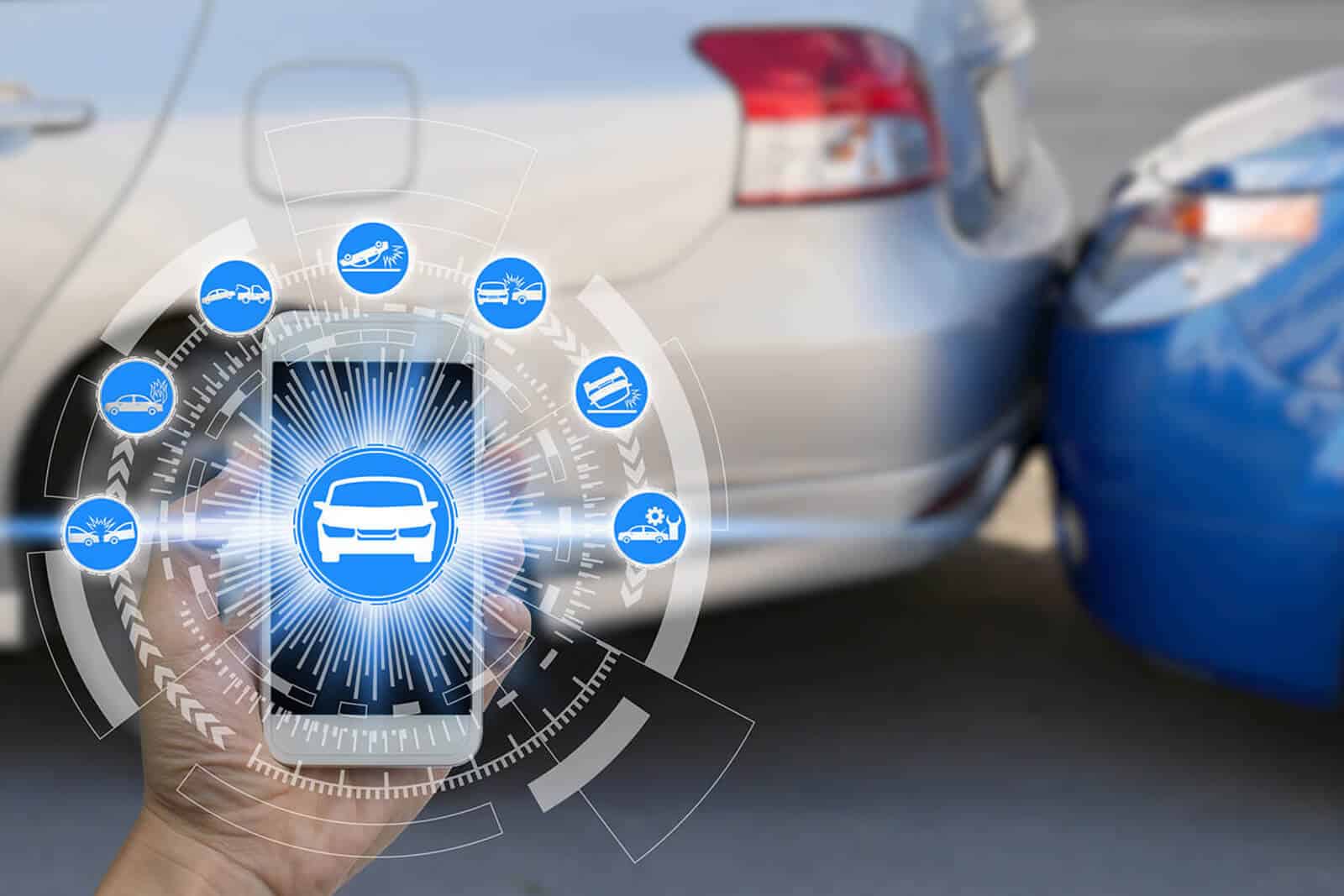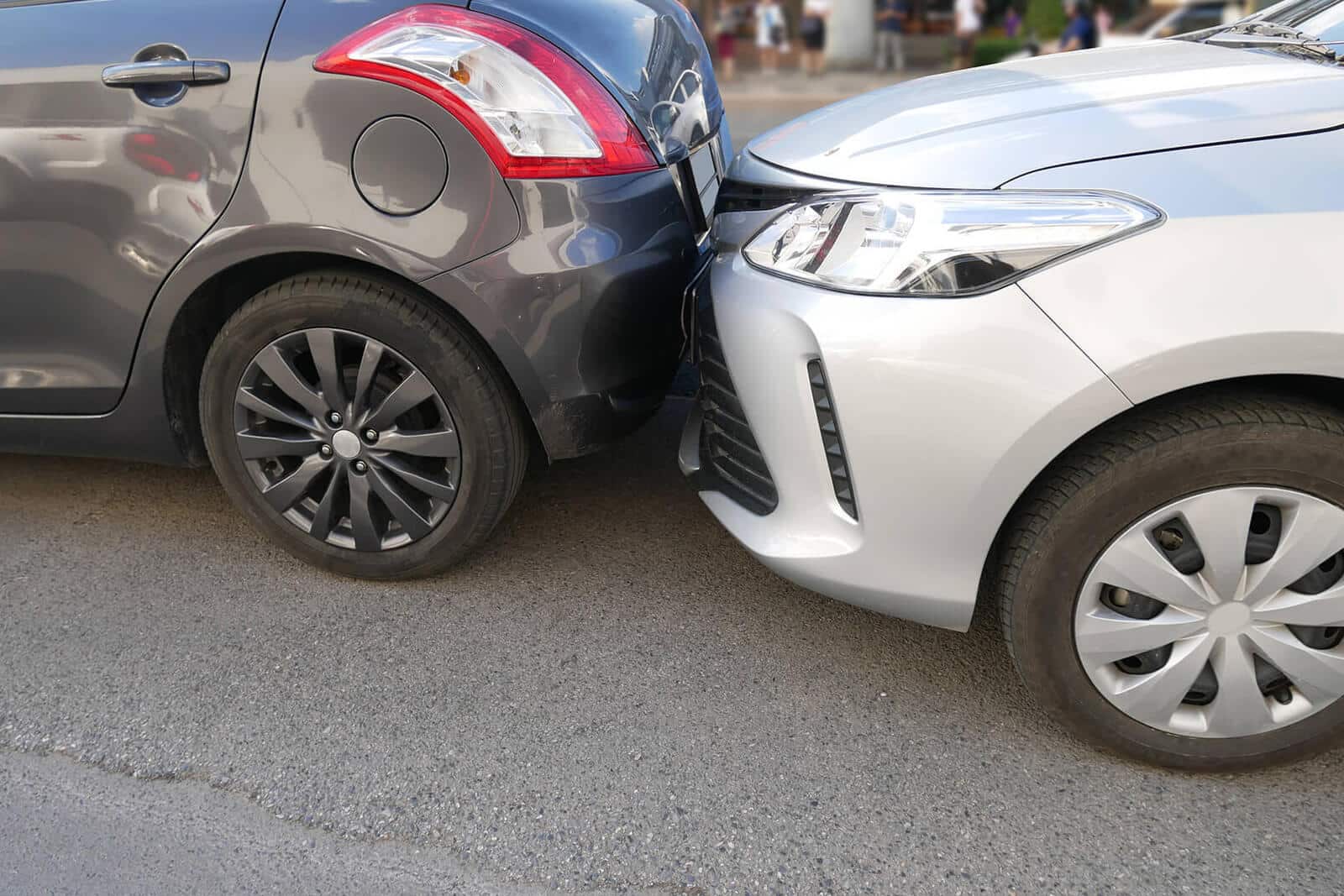Rear End Collisions: 6 Things To Do If You Get Hit From Behind

With around 50,410 rear-end collisions occurring in Florida in 2021, knowing what to do when rear-ended is essential to ensure your safety and protect your rights. Although you can file with your own PIP insurance for medical coverage after a crash, you may also be able to seek damages from the at-fault driver who rear-ended you.
The car accident attorneys at Emerson Straw can help you understand what to do when you’re rear-ended. We will also explain your legal options for compensation so you can pay for your medical expenses and replace lost wages incurred from your injuries.
1. Contact Emergency Services
Contacting emergency services is a crucial step after being involved in a rear-end collision, especially if there are injuries or significant damage to the vehicles. You can receive immediate medical care for your injuries by calling the authorities.
Reporting the incident also creates an official record, which your attorney can use to help you file a compensation claim.
- Call 911: If anyone is injured or the damage is severe, call 911 immediately. Provide the operator with accurate details about the location of the accident, the number of vehicles involved, and the extent of any injuries. This information helps emergency responders reach the scene as quickly as possible.
- Move your vehicle: If your vehicle is still operational and it’s safe to do so, move it to the side of the road or another secure spot to avoid obstructing traffic or causing additional accidents. Turn on your hazard lights to alert other drivers of your presence.
- Request a police report: In Florida, you must contact the police for accidents resulting in over $500 worth of property damage, injury, or death. When the police arrive, they will file a report containing factual information about the crash, which your attorney can use for your claim.
Ensure you get the responding officer’s name, badge number, and report number so your attorney can request the report for your case. - Stay on the line: Remain on the line with the emergency operator until help arrives or they instruct you to hang up. The operator may provide additional guidance, such as how to perform first aid or handle hazardous materials.
2. Exchange Information
Exchanging information with the other driver involved in a rear-end collision is crucial for processing insurance claims and any legal issues that may arise. By documenting the accident, you’ll be better prepared to deal with insurance companies, legal matters, and any disputes arising from the rear-end collision. Proper documentation can help ensure a fair and timely resolution for all parties involved.
Collect the following details from the other driver after a collision:
- Driver’s name and contact information, including their full name, address, phone number, and email address
- Driver’s license number and state where it was issued
- Vehicle information, including the make, model, year, color, and license plate number
- Insurance information, such as the insurance company, policy number, and contact information
3. Document the Accident
Documenting the accident helps protect your interests and facilitates the insurance claim process. Following a rear-end collision, take these steps to create a comprehensive record of the incident:

- Take photos: Use your smartphone or a camera with a car claim app to capture images of the accident scene, the damage to vehicles, skid marks on the road, and the surrounding environment. These photos are valuable evidence for insurance claims and potential legal disputes.
Have your insurance company’s app installed on your smartphone, so you can easily access features like geo-tagging, time-stamping, and other data that can help accurately document the scene. - Write down details: As soon as possible after the accident, make a written record of the events leading up to the collision, the time and date, weather conditions, road conditions, and any other relevant factors. Use the Notes app on your smartphone if possible. This helps establish a clear and accurate account of the incident and provides a record of the time and date the incident occurred.
- Obtain a copy of the police report: If a police officer is called to the scene, get a copy of the police report. The report contains crucial details about the accident, including the officer’s observations, statements from both drivers, and in some cases, a determination of fault.
You can get a copy of the crash report through the Florida Highway Safety and Motor Vehicles online portal, which must be downloaded within 48 hours of the request.
You can also request a report in person or by mail with a signed statement at the closest Florida Highway Patrol station to where the accident occurred. This method takes around four to six weeks. - Gather witness statements: If there were any witnesses to the accident, ask for their contact information and written or recorded statements describing what they saw. Witness accounts can help corroborate your version of events and provide additional evidence supporting your claim.
- Keep records of medical treatments: If you or any passengers in your vehicle were injured, maintain records of all medical treatments, including doctor’s visits, prescriptions, physical therapy, and other related expenses. These records will be necessary when seeking compensation for your injuries through an insurance claim or legal action.
- Organize your documents: Keep all accident-related documents, such as photos, notes, witness statements, medical records, and the police report. Consider organizing these documents in a binder or folder, with the most recent record on top or with tabs for each section. You might also scan these files so you have digital copies that can be easily stored and shared with your attorney.
Having this information readily available will make it easier to manage your insurance claim and any potential legal proceedings.
4. Seek Medical Attention
Even if you initially feel fine, seeking medical attention after a rear-end collision is a crucial step for what to do when you’re rear-ended. Some injuries may not be immediately apparent but can have long-term consequences if left untreated.
Seeking medical attention after a rear-end collision is vital for your health and well-being and for establishing a comprehensive record of your injuries in case you need to pursue compensation. Always prioritize your health and follow the advice of healthcare professionals to ensure a smooth recovery process.
Take the following steps when seeking medical attention following a rear-end accident:
- Call for immediate help: If you or any passengers in your vehicle have sustained injuries, call for emergency medical assistance immediately. Do not attempt to move anyone severely injured, as this may exacerbate their condition.
- Visit a healthcare professional: Even if you don’t feel injured, consult a healthcare professional, such as a primary care physician, an urgent care clinic, or an emergency room, as soon as possible after the accident. They can perform a thorough examination to identify any potential injuries and recommend appropriate treatments.
Visiting a medical professional ensures you receive appropriate treatment and helps you establish your claim. Your attorney from Emerson Straw can use your medical records, treatment plans, and hospital bills to support your case and establish the severity of your injuries with insurers. - Be honest and thorough: When describing your symptoms to a healthcare professional, be as honest and thorough as possible. Don’t downplay or ignore any pain, discomfort, or changes in your physical or mental state. This information will help the healthcare provider accurately diagnose and treat any injuries you may have sustained.
- Follow prescribed treatments: Adhere to any prescribed treatments or follow-up appointments recommended by your healthcare provider. This may include medication, physical therapy, or additional medical evaluations. Following the prescribed treatment plan is crucial for your recovery and documenting your injuries in the event of an insurance claim or legal action.
- Keep records of medical care: Maintain detailed records of all medical care you receive, including doctor’s visits, prescriptions, diagnostic tests, and any other related expenses. These records will be necessary if you need to seek compensation for your injuries through an insurance claim or legal action.
- Monitor your symptoms: Pay close attention to any changes in your physical or mental state in the days and weeks following the accident. Injuries such as traumatic brain injuries or whiplash may not show symptoms immediately but can have life-altering consequences if left untreated.
5. Contact Your Insurance Company
After a rear-end collision in Florida, contact your insurance company to report the accident and initiate the claims process. Florida is a no-fault state, which means that each driver’s Personal Injury Protection (PIP) insurance covers their injuries, regardless of who is at fault for the accident.
The following elements can help you obtain the highest amount of coverage possible under your own insurance policy:
- PIP coverage: Florida law requires every driver to carry a minimum of $10,000 in PIP insurance. Following an accident, this coverage pays 80% of your medical expenses and 60% of your lost wages up to the policy limit. PIP insurance also provides a $5,000 death benefit in case of a fatality.
- Medical Payments coverage: In Florida, you can add Medical Payments coverage, sometimes called MedPay, to your car insurance. Adding Medpay can help you pay around 20% of medical costs not covered by PIP and meet your PIP deductible.
- Reporting the accident: Contact your insurance company as soon as possible after the accident to report the incident and provide them with the necessary information, such as the other driver’s details, witness statements, and photos of the scene. Your insurance company will guide you through the claims process and inform you of any additional steps you need to take.
- Seek medical attention promptly: To be eligible for PIP benefits in Florida, you must seek medical attention within 14 days of the accident. Failure to do so may result in the denial of your PIP claim. Keep records of all medical treatments, as these documents will be necessary to support your claim.
- Medical provider restrictions: In Florida, PIP insurance only covers medical expenses from approved providers. This typically includes physicians, osteopathic physicians, dentists, chiropractors, and hospitals but excludes services like acupuncture or massage. Verify that your PIP insurance covers your healthcare provider before receiving treatment.
- PIP deductible: Some PIP policies in Florida may have a deductible of $250, $500, or $1,000, which is the amount you must pay out-of-pocket before your insurance coverage kicks in. If your policy has a deductible, factor this into your expenses when seeking medical treatment.
- Property damage: While PIP insurance covers your personal injuries, it does not cover damage to your vehicle. You must use your collision coverage or the at-fault driver’s property damage liability (PDL) insurance to get coverage for vehicle repairs.
6. Speak With a Car Accident Attorney
In Florida, you can file a third-party claim against the person who caused your injuries in a rear-end accident if your damages exceed your PIP coverage. Since PIP only pays up to $10,000, Florida allows you to file a third-party claim against a negligent driver if your medical costs exceed the PIP maximum.
The state’s serious injury threshold allows you to seek additional economic damages in a third-party claim, such as lifetime medical costs and future earnings. It also lets you pursue non-economic damages, such as pain and suffering, to compensate for your injuries.
To understand your legal options for compensation, speak with an auto accident attorney from Emerson Straw Injury Law after a rear-end accident. Our lawyers will ensure you pursue every avenue of compensation available, including PIP benefits, a third-party claim, or a personal injury lawsuit.
Our legal team can offer the following to get you a fair settlement after your collision:
- Expert guidance: Our car accident attorneys have extensive knowledge of the laws and regulations governing auto accidents. We can provide valuable guidance on how to deal with insurance companies, medical providers, and other parties involved in the accident.
- Maximizing compensation: A skilled attorney can help you identify all potential sources of compensation, including insurance policies, third-party claims, and lawsuits. They can also help you gather the necessary evidence, such as medical records, witness statements, and expert opinions, to build a strong case for your claim.
- Protecting your rights: Insurance companies often focus on minimizing their payouts and may try to undervalue your claim or pressure you into accepting a low settlement. Our car accident attorneys can represent your interests and negotiate with insurance companies, helping you receive a fair settlement.
- Contingency fee arrangements: We offer our legal services on a contingency fee basis, meaning you only pay if we successfully recover compensation on your behalf. This arrangement minimizes your financial risk and allows you to focus on your recovery without worrying about upfront legal fees.

Safeguarding Your Rights and Ensuring a Fair Outcome in a Rear-End Crash
If you’ve been involved in a rear-end collision and need expert legal guidance, contact Emerson Straw Injury Law. Our experienced attorneys are dedicated to helping accident victims navigate Florida insurance after a car crash, protecting their rights, and fighting for fair compensation.
Contact us today for a free, no-obligation consultation to get the legal support you need and know what to do when you’re rear-ended.
